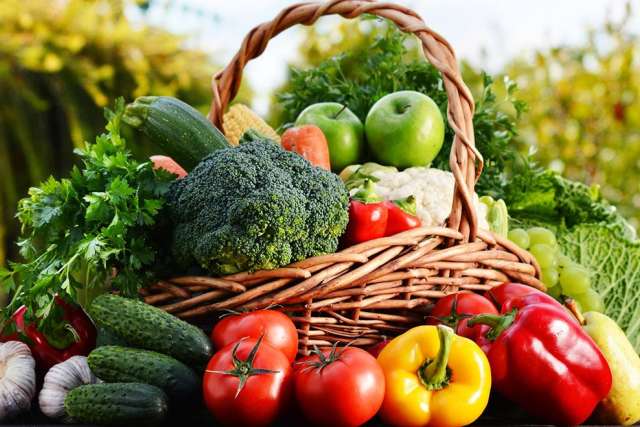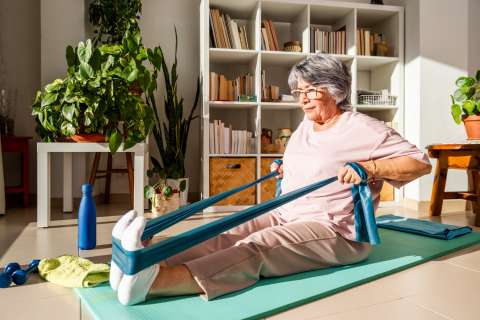In a culture that idealizes thinness and a country where obesity affects more than 40% of the population, it’s easy to overlook malnutrition.
Yet nutritional deficiencies affect tens of millions of Americans, with growing prevalence among seniors. The condition can lead to significant health problems, including loss of strength and a weaker immune system. People with chronic diseases, including those who are hospitalized, are at particular risk of developing malnutrition, according to the American Society for Parenteral and Enteral Nutrition, which sponsors Malnutrition Awareness Week from October 5-9.
Even people who are overweight or obese can experience malnutrition, says Erin Morse, RD, chief clinical dietitian for UCLA Health. It’s not just about calories, she says, but the content of those calories. Some foods may be calorically dense, but not necessarily nutritious. The vitamins and minerals in fruits, vegetables and other nourishing foods support the immune system and essential body functions.
“There’s a misconception that people who have obesity can’t have malnutrition, but they absolutely can,” Morse says. “If they’re not eating very well, they’re not getting the vitamins and minerals and nutrition they need to support their immune system.”
For hospitalized patients, malnutrition is associated with longer hospital stays, higher medical costs and increased mortality. Morse and her colleagues focus on recognizing and diagnosing nutritional deficiencies among these patients.
Many are malnourished when admitted, she says. Some may suffer further during their stay because of poor appetite as a side effect of pain, medication or various treatments. In older patients, such deficiencies can cause dizziness and muscle weakness — increasing the risk of falls and broken bones — and slow recovery.
“Adequate nutrients are required for wound healing,” Morse says. “If a patient has malnutrition and has to have surgery, the wound might not heal as quickly, which increases risk of infection and length of hospital stay.”
Signs to watch for
Dietitians diagnose malnutrition in hospitalized patients through interviews about eating habits, weight loss and physical exams to assess muscle and fat loss. But people who aren’t hospitalized may not immediately notice signs of malnutrition.
It’s more than just hunger, Morse says. Other key indicators include:
- Unplanned weight loss and clothes feeling looser;
- Loss of strength and a waning appetite that doesn’t return;
- Ongoing fatigue and swelling in the legs;
- Confusion or memory loss.
Food insecurity — the lack of reliable access to enough affordable, nutritious food — can be a contributor to malnutrition, Morse notes. Such challenges have increased during the pandemic as jobs have been lost and some food banks overwhelmed, and Los Angeles County has expanded its food programs and outreach in response.
The stress of pandemic-related isolation can also cause some people to eat less, she says. For seniors, these issues may be compounded by difficulty getting groceries or a reluctance to go out to the market due to the severe impact of COVID-19 on the elderly.
“They may also have muscle fatigue and weakness, so they can’t cook as much,” Morse says.
Older people also tend to use more medications, some of which can alter taste and appetite, she says. “Taste changes can happen over time, and without taste, they get bored with food easily and don’t want to eat.”
In addition, dental issues such as tooth pain or loss may prevent people from eating as much.
Addressing malnutrition
If you think you or someone you know might be suffering from malnutrition, Morse says to make an appointment with a physician or ask for a referral to a registered dietitian.
“As health professionals, our goal is for early detection, prevention and treatment,” she says.
Some other food resources:
• CalFresh provides supplemental food funds to low-income individuals and families.
• Los Angeles Regional Food Bank distributes food and other essentials to children, families and seniors in need.
• WIC provides packages of healthy food to families and expectant mothers.
• The Los Angeles County office of Workforce Development, Aging & Community Services is delivering meals to seniors and people with disabilities during the pandemic.
• Los Angeles Unified School District provides free meals to students and community members on weekdays through its Grab & Go Food Centers.



